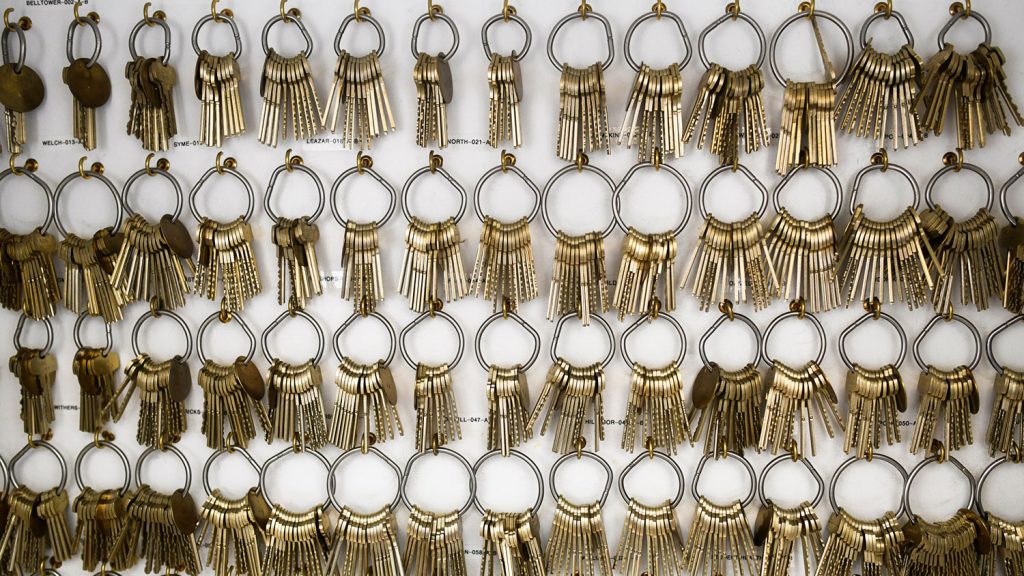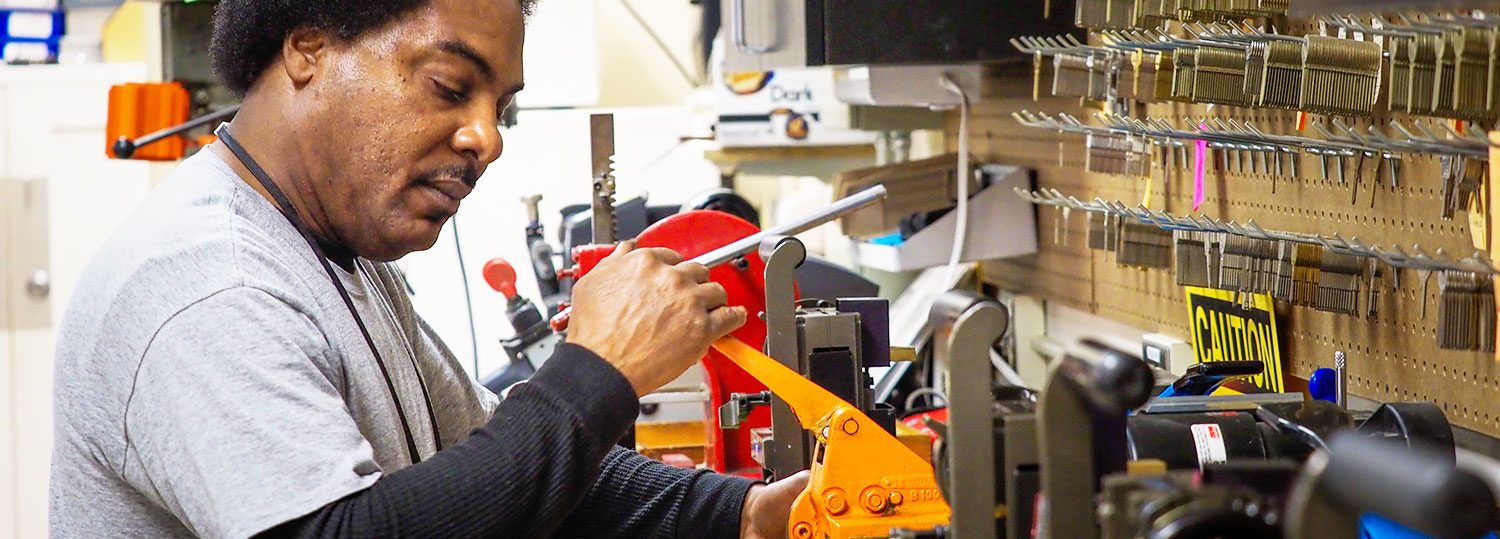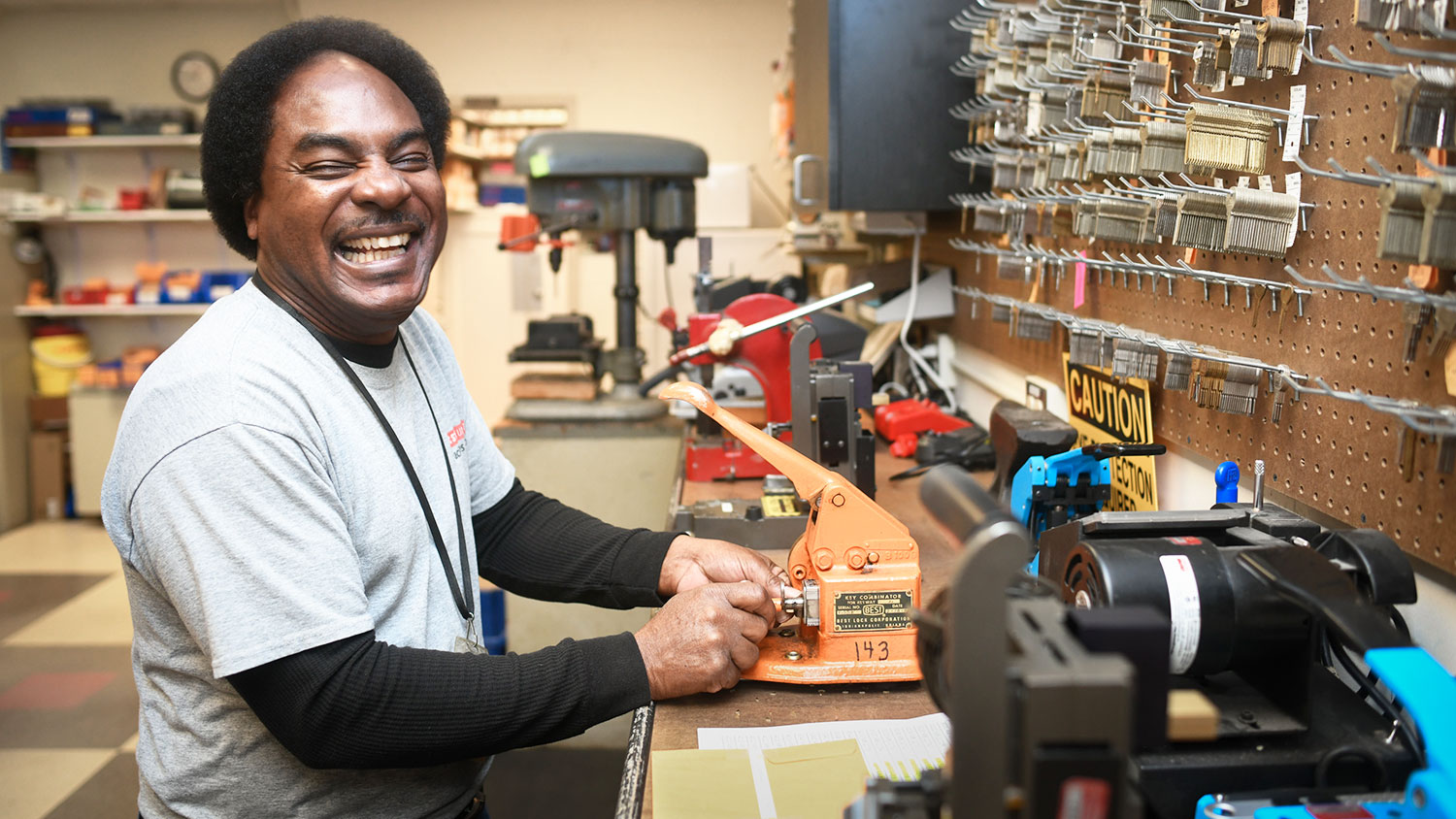Jeff Thomas knows that helpless, sinking feeling you get when you accidentally lock yourself out of a room — or, as happened to him one time, lock yourself in a room. Luckily he knew help was nearby in the form of a campus locksmith armed with a bag of tools designed for just this situation. As one of NC State’s six locksmiths, Thomas also carries such a bag. It’s not much good if it’s on the other side of a locked door though.
“I had to wait for one of my associates to come back,” he says. “He was looking for me. I was like, ‘Let me out this door.'”
Campus locksmiths are used to responding to the unexpected. Keys go missing, locks break, doors stick, electronic codes stop working — and people trying to get through a door usually need to do so immediately, no matter what time it is. The locksmiths at NC State’s Lock Shop rotate on-call duties each week to ensure someone is available 24 hours a day. It’s necessary: One night in October saw Thomas working until 11 p.m., and when he finally made it home to catch some sleep, he had to come back at 3:15 a.m. to help a student locked out of a suite.
Students keep his team busy, Thomas says, because many of them lose keys. In that case, a locksmith has to change the lock immediately because it’s a liability issue, and the students pay for it. They take their key problems to University Housing; faculty and staff should contact their department’s key representative. The Lock Shop charges the department or unit for keys that need to be replaced.

Once upon a time, locksmiths resorted to extreme measures to solve problems. Thomas recalls one incident in which he was at the top of a ladder trying to access a room from the outside: “It was a real windy day, and I got blown off the ladder, and one of my guys caught me in his arms.”
Supervisor Jack Walder says those kinds of dangerous practices are a thing of the past and not standard procedure. Nowadays the solution to a faulty lock or stuck door lies in a locksmith’s toolkit. That includes the important pick set, a leather case that holds skinny, steel tools of various sizes that taper to a point or curve into a hook. Thomas uses them to manipulate the unique configuration of pins in each lock, relying on his sense of touch to detect movement and tension until the pins align as they would around a key. It’s a skill that develops over time and with lots of practice. Thomas, who has been a locksmith for more than 20 years, can pick a lock in under five minutes.
Tools and skill requirements change with the times. Locksmiths must take classes and earn 16 hours of credit every three years to keep their licenses current. Topics include cipher locks — those that require a code — and handicap operator installation.
Not all emergencies have to do with locks. A call of “code one” means the locksmith needs help urgently.
“This particular time, one of our locksmiths, he was bending down to do something, and his pants split, and he had to call a code one — ‘Bring me a pair of pants.’ Because he couldn’t even move,” Thomas says.
Along with emergencies, the Lock Shop handles larger projects, such as rekeying campus buildings. The shop also works with contractors, who may sign out rings of keys with an ID card. The Lock Shop records when the keys are returned and notifies a supervisor if they don’t come back within a certain timeframe. Cameras record the checking-in and -out process
“You can’t take every key with you, or the master key, because if you lose them, then a whole system is lost,” Thomas says.
With an estimated more than 1 million doors at NC State, the Key Shop stays busy. Thomas likes it that way.
“The variety of work that we have to do — it’s never always the same,” he says. “You get to see everything and go different places. It’s never a dull moment.”


